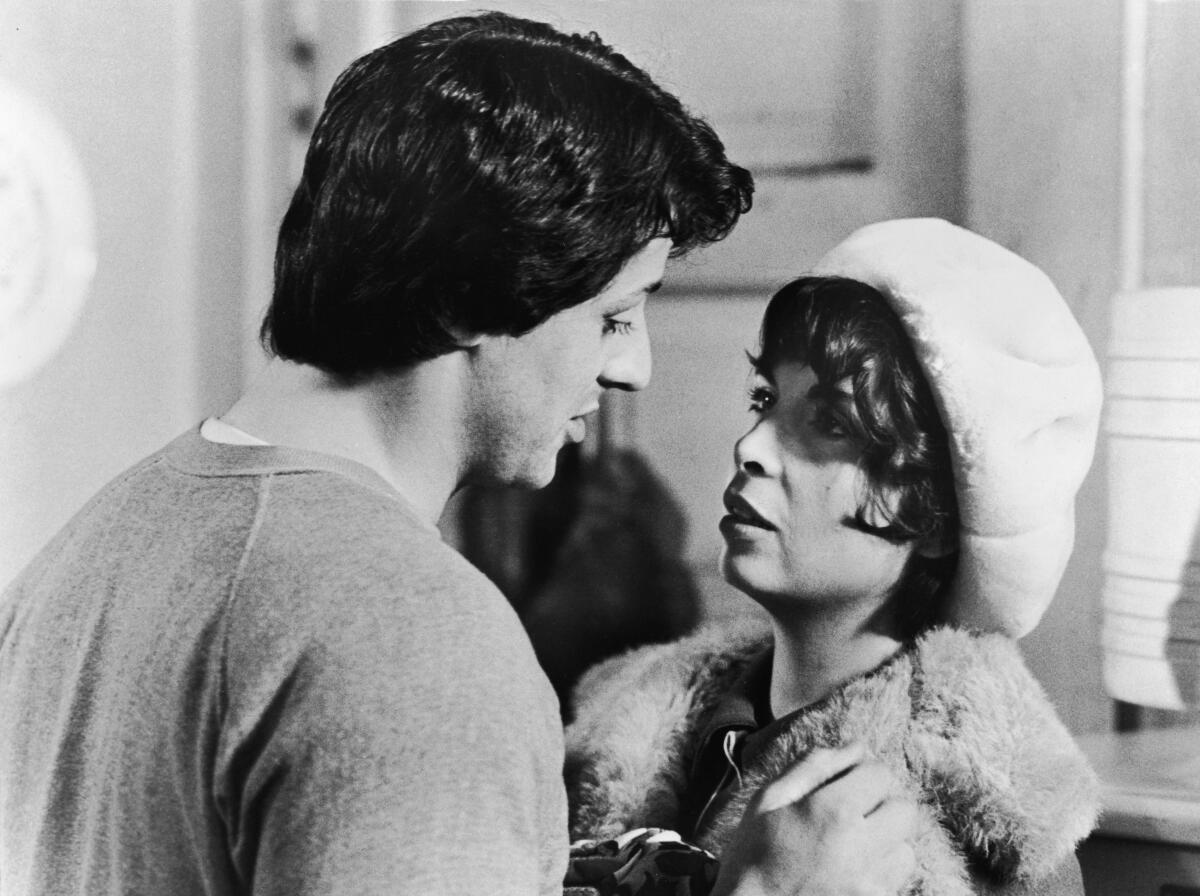Good luck, Amazon. Unpacking MGM’s vault may be harder than it sounds

This is the June 1, 2021, edition of The Wide Shot, a weekly newsletter about everything happening in the business of entertainment. Sign up here to get it in your inbox.
Jeff Bezos’ online bookstore Amazon.com was barely a year old in 1996 when Kirk Kerkorian bought storied movie studio Metro-Goldwyn-Mayer for a third and final time.
For eccentric billionaire Kerkorian, part of the attraction to MGM then was similar to Amazon’s today — the film company’s extensive library of older movies, including the Rocky Balboa and James Bond titles.
Kerkorian rode Hollywood’s DVD boom and sold MGM for about $4.9 billion in 2004, netting himself a $900-million return, according to a Los Angeles Times story.
Amazon’s $8.45-billion bet on MGM is about building the e-commerce giant’s streaming platform, not packaging discs and TV licensing deals, but the tools are essentially the same. Speaking last week about MGM’s portfolio of more than 4,000 film titles and 17,000 TV episodes, Bezos told shareholders the company was looking forward to “reimagining and developing the deep catalog of MGM.”
In the past, a trove of beloved oldies was valuable because of the cash flow generated from licensing and home video sales. In the streaming era, film libraries like MGMs are desirable for two main reasons. First, classic movies are comfort food and keep subscribers on the service. Second, they provide fodder for remakes, spinoffs and TV shows.
Inside the business of entertainment
The Wide Shot brings you news, analysis and insights on everything from streaming wars to production — and what it all means for the future.
You may occasionally receive promotional content from the Los Angeles Times.
But unpacking MGM’s vault will be harder than it sounds, according to people familiar with the company. Much of the library is already committed to other streaming services through licensing, and it will be years before Amazon can put the bulk of MGM’s titles on Prime Video. The “Rocky” titles currently stream on HBO Max. The 007 movies appear on such streamers as Netflix, Disney’s Hulu and Fox Corp.’s Tubi. Paramount+ has a deal to stream new MGM movies, in addition to library titles.
It’s a problem familiar to previous buyers. When Sony Corp. and a group of partners bought MGM from Kerkorian, executives at the Tokyo-based company were frustrated that so many rights were already committed. MGM, which Sony bought to bolster its home video business, later was hammered by the DVD bust and filed for Chapter 11 protection from creditors in 2010.
Plus, those much-heralded “derivative” rights — granting the ability to make sequels, spinoffs, etc. — are often not as clean as you’d think. Remakes can be complex, especially for older titles, with rights split with filmmakers and other stakeholders. United Artists, which became part of MGM in the early 1980s, was known for sharing rights with talent during its heyday.
The biggest example is James Bond, which is split 50-50 financially between MGM and the Broccoli heirs, who wield enormous clout over the super-spy series’ creative direction. So don’t expect a straight-to-streaming Bond movie or a Moneypenny sitcom.
“This acquisition of MGM is not as clean and simple as Disney buying Lucasfilm,” said Chad Fitzgerald, an entertainment attorney at Kinsella Weitzman Iser Kump. “There are going to be a lot of rights holders that Amazon is going to need to account to, just like MGM has had to do.”
Amazon and MGM declined to comment.
Still, despite the complex matrix of rights that is sure to arise as Amazon picks through its purchase, Amazon’s MGM deal is a smart long-term play, said Steven E. Blume, co-founder of Content Partners, a Los Angeles company that specializes in acquiring and monetizing libraries, including Revolution Studios.
Amazon needed to do something to stay competitive with Netflix (which is building its own massive library of originals) as well as Disney+ and HBO Max (which came to streaming with big built-in catalogs).
“Amazon’s in the long game,” Blume said. “Over time you’ll slowly start to see MGM titles appear on Amazon. ... But it will take a while.”

Some of MGM’s classics have already been picked over, with re-imaginings of “Rocky” (“Creed”), “RoboCop,” “Child’s Play” and “The Magnificent Seven” in theaters, “Fargo” for TV (FX) and “Four Weddings and a Funeral” for streaming (Hulu). There’s still stuff to revive, though. MGM is working with “Sonic the Hedgehog” director Jeff Fowler on a live-action/CGI hybrid version of “The Pink Panther.”
Also tricky is valuing MGM’s piece of the Mark Burnett-produced reality TV shows. For example, MGM produces “Shark Tank” in association with Sony Pictures, which controls global distribution for the format and owns the U.S. version, which airs on Disney’s ABC with reruns on Comcast’s CNBC. The Japanese format on which “Shark Tank” is based (called “Dragon’s Den”) is owned by Nippon TV.
MGM’s library has both shrunk and expanded over the years.

Kerkorian combined UA with MGM in 1981, bringing in the Rocky and Bond franchises, before selling MGM/UA to Ted Turner. Turner quickly sold the studio back but kept the MGM titles made before 1986, which he would use to fuel his TV movie channel empire. Those pre-1986 films, including “Gone With the Wind” and “The Wizard of Oz,” now belong to Warner Bros. The UA movies remained with MGM.
In 1990, Kerkorian sold again. When he retook control in 1996, he went on a buying spree, orchestrating the purchase of “The Silence of the Lambs” home Orion Pictures, which also included AIP-owned B-movies and blaxploitation pictures such as “Blacula” and “Foxy Brown.” In 1998, MGM bought Polygram’s library, adding the likes of “The Graduate,” “Four Weddings and a Funeral” and “Fargo.”
MGM has endured an often troubled history since its golden age; Peter Bart accused Kerkorian of transforming “corporate demolition into a high art.” But the endurance of the remaining library is noteworthy. Rather than dying with physical DVDs, legacy studio libraries are as valuable as ever, thanks to increasing scarcity and demand from streaming services. Streaming changed the war, not the weapons.
Stuff we wrote
— These filmmakers were told white men “wouldn’t relate to” the Tulsa Race Massacre. Then came HBO’s “Watchmen.”
— Disneyland and Disney California Adventure have begun selling tickets to travelers from out of state for admission starting June 15, the day California is scheduled to loosen its pandemic restrictions on most businesses.
— Globes, Globes, Globes. The Hollywood Foreign Press Assn. taps new diversity, ethics and legal consultants as pressure to reform mounts.
— Fox News hosts Tucker Carlson and Sean Hannity enter the streaming fray amid cord-cutting. For the first time, Fox News will make its most popular programming available online to consumers who don’t subscribe to cable.
‘Quiet’ gets loud

Paramount’s “A Quiet Place Part II” gave the domestic pandemic box office a jolt, grossing $57 million through the four-day Memorial Day period. The results marked a pandemic-best for a U.S. opening and provided the latest sign that American audiences are willing to go back to the movies when theaters are open and playing films worth seeing. Disney’s “Cruella,” which is also available on Disney+ for an upcharge, scored $21.3 million for the three-day frame and $26.5 million during the long weekend.
Number of the week

The $43-billion merger of WarnerMedia and Discovery is clearly intended to boost the new combined company’s efforts in subscription streaming. But will it also cause more consumers to abandon their cable bundles?
Probably not.
Analysts at MoffettNathanson explained why: WarnerMedia and Discovery together operate more than 25 pay-TV channels (CNN, Investigation Discovery, TNT, HGTV, etc.). And people actually watch those networks. The combined Discovery and WarnerMedia channels account for about 30% of total TV viewing hours in the U.S. measured by Nielsen, a higher share than any other company.
That means Discovery-WarnerMedia will be more likely to preserve the status quo of traditional TV viewing, analysts Craig Moffett and Michael Nathanson argued. “New Discovery’s heavy concentration of cable networks means that they will ... be less likely than AT&T would have been on their own to strip-mine their networks” for streaming content, they wrote.
The worst-case scenario for cable and satellite operators would be if AT&T, in its quest to build HBO Max, put all its good content on streaming and left its linear networks with the scraps. Ratings would collapse even more, and viewers would flee the bundle faster.
Fast and spurious

John Cena, the pro wrestler turned actor and star of Universal Pictures’ “F9,” posted a groveling apology on Chinese social media site Weibo to atone for an apparently very grave transgression: referring to Taiwan as a country in an interview while promoting the movie.
The incident created a fracas across political divides, with the likes of Keith Olbermann and Sen. Tom Cotton (R-Ark.) criticizing Cena. It was the latest example of a star or studio bending over backward to appease mainland Chinese sensibilities, echoing controversies over Tom Cruise’s jacket in “Top Gun” (altered to remove Japanese and Taiwanese flags) and the inclusion of a map in “Abominable” recognizing China’s disputed territorial claims.
Universal and Cena are highly incentivized to play nice with China, where “The Fast and the Furious” franchise does huge business. Still, the Cena thing was weird, even if we can admire his Mandarin skills.
More top stories
— WarnerMedia CEO Jason Kilar says he will stay at the company at least through the merger. He plans to reassess his options next year, after AT&T spins off and combines the company with Discovery. (WSJ)
— From dashing duke to Hollywood heartthrob. Regé-Jean Page reflects on life beyond “Bridgerton.” (Variety)
— After a year of upheaval, HBO Max has carved out its place. Despite corporate shakeups, the streaming service has managed to establish itself. (The Ringer)
Finally...
Uhhh... I guess it’s a good time to start listening to the audiobook of Brad Stone’s “Amazon Unbound,” which I downloaded sometime last month.
Inside the business of entertainment
The Wide Shot brings you news, analysis and insights on everything from streaming wars to production — and what it all means for the future.
You may occasionally receive promotional content from the Los Angeles Times.




